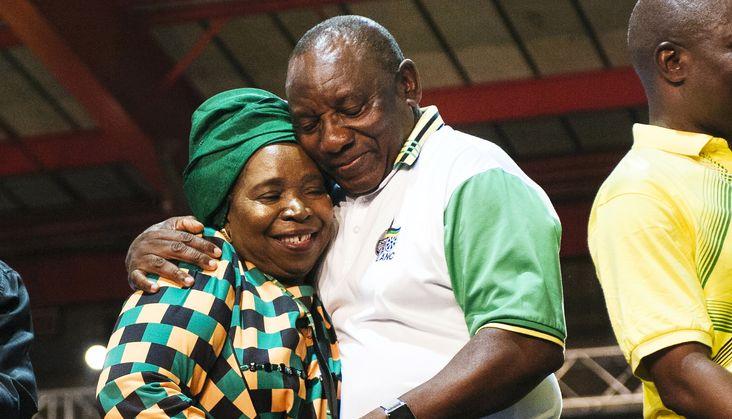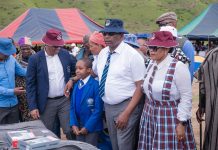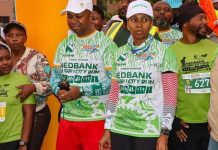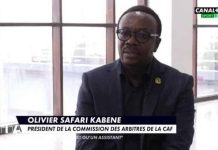Africa-Press – Lesotho. In the final part of this series on the life of Cyril Ramaphosa he re-enters politics and achieves his ambition to lead South Africa.
A mix of daring and desperation propelled Ramaphosa back to top-table politics in 2012. Just over five years later, he was president. Plotting for Ramaphosa’s second coming – against a venal but well-protected party regime – had looked the riskiest of ventures.
All of his fêted talents as activist, organiser, negotiator, lawyer, businessman and diplomat went into Ramaphosa’s herculean re-entry project. First, he had to take the number two slot in a government about which he had the deepest reservations and whose president was facing accusations of grand corruption.
An acolyte of then president Jacob Zuma tells The Africa Report that his camp was looking for a candidate to appease investors: “Cyril did not have any grassroots support, so he was given the position.
He never had to work for it. ” That’s not quite true. Ramaphosa, who became ANC deputy president in December 2012, scored 40 votes more than Zuma. Despite his appeals to liberation-party solidarity, Zuma’s reign caused the worst schisms in the ANC since its founding in 1912.
That cut both ways for Ramaphosa’s election campaign. He had taken a long sabbatical from the party and politics. Then he had breezed back in, determined to fix the broken party and to win the presidency of the ANC against a strong insider candidate, the ex-wife of the sitting president.
Photographs show a tearful Ramaphosa, head in hands, moments after his narrow victory in the party elections in December 2017. The full story of how Ramaphosa secured his winning margin over Nkosazana Dlamini-Zuma is problematic.
A long-time ANC activist tells The Africa Report that Ramaphosa was set to lose the vote. Some activists organised a meeting between billionaire businessman Robert Gumede and Ramaphosa.
This followed reports that Gumede’s ally, David Mabuza, premier of Mpumalanga province, was wavering. We are going to root out corruption, and that is a promise I can make” – Cyril Ramaphosa
Zuma’s supporters were threatening Mabuza on charges of grand corruption and political murder – all of which he denies – unless he backed Dlamini-Zuma.
Gumede had a long-standing gripe against Dlamini-Zuma for cancelling one of his company’s biggest contracts at the Ministry of Home Affairs. “Cyril’s instinct was to stay away from dealing with these two guys,” the activist says.
“But one of his supporters told him to get real if he really wanted the presidency. He could not have won it without Mabuza [. . . ] that was the bitter truth. ” Equally, Ramaphosa was said to be uncomfortable when he and the ANC’s other top five officials called Zuma to press him to resign as state president.
Still more arduous is the way ahead: to win a substantial mandate for the ANC in the May 2019 elections, then push through reform of the country’s creaking public sector and embattled state institutions as well as a wide-ranging land-reform programme, in a way that will create jobs and bring in the promised $100bn of investment (see page 32).
There is also the need for tough investigations, prosecutions, holding to account, argues former Cape Town mayor De Lille: “The buck stopped with Zuma and his cabinet, including Ramaphosa. They advise him and they must take responsibility for the failures.
For More News And Analysis About Lesotho Follow Africa-Press




![THE RULING PARTY [RFP] LAUNCHED FIRST DIASPORA COMMITTEE THE RULING PARTY [RFP] LAUNCHED FIRST DIASPORA COMMITTEE](https://static.africa-press.net/lesotho/sites/62/2026/02/sm_1771878934.036281-218x150.jpg)

